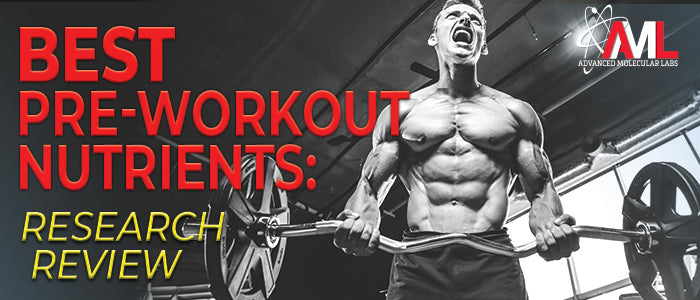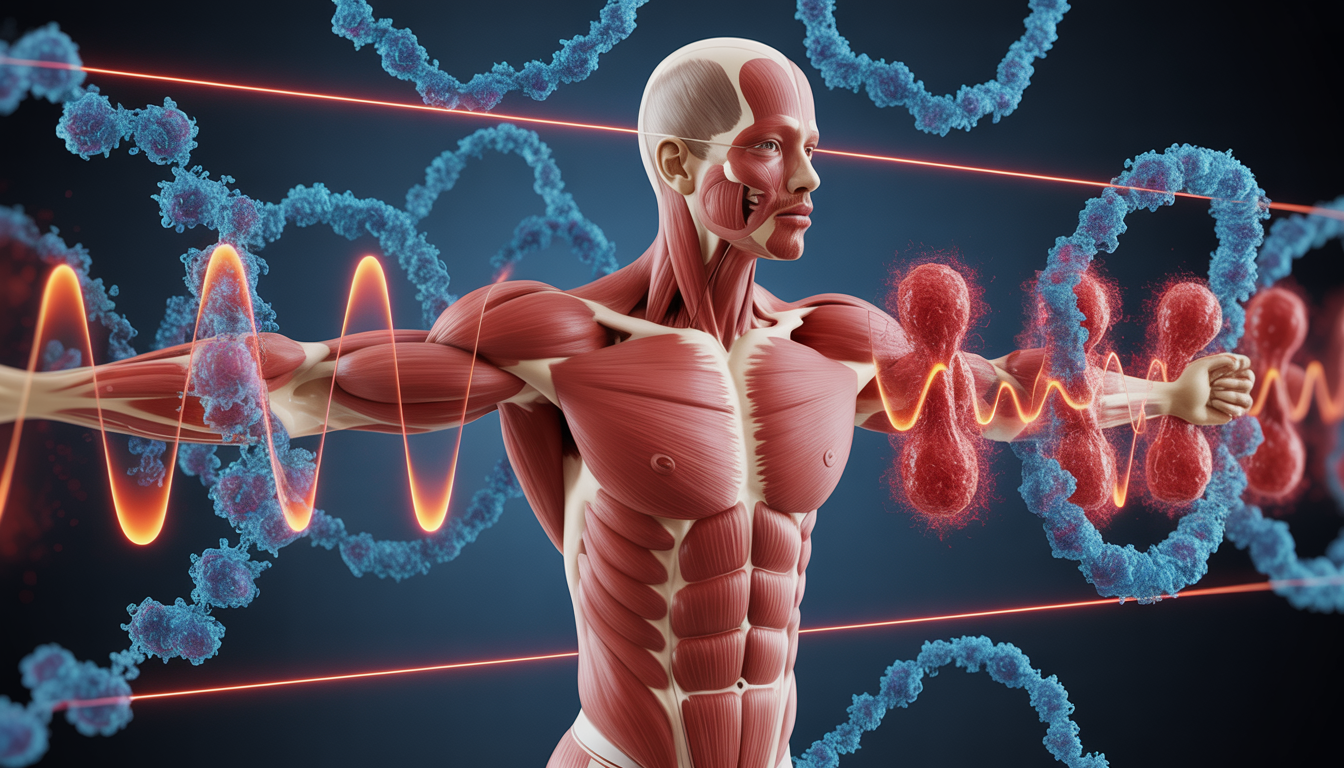


Intermittent Fasting Muscle Loss: Research Insights & FAQs
By Steve Blechman
We all know that obesity is an independent risk factor from the coronavirus and severe illness. Now research has shown that just being overweight, not obese, can result in severe illness and even death! Intermittent fasting, often referred to as time-restricted eating, has become the latest diet craze not only for weight loss, but also for enhancing health.
Everyone from well-known celebrities to everyday, average people are trying it and claiming it is successful. Caloric restriction and intermittent fasting have been practiced for decades. It has gained popularity due to a growing body of research. Over the years, this research has shown that intermittent fasting and caloric restriction can enhance weight loss, cognitive function and help prevent heart disease, cancer, and diabetes. It can also slow down the aging process and enhance longevity, but most of the research has been done on mice and rhesus monkeys, and not humans. A review and meta-analysis of intermittent fasting often referred to as time-restricted feeding (TRF) showed that it had a very positive effect on body weight and metabolism! But a commonly asked question remains: does intermittent fasting cause muscle loss? We will get more into the study that reviewed the relationship between intermittent fasting, muscle loss and fat loss.
This meta-analysis was published December 6, 2019, in the journal Reviews in Endocrine and Metabolic Disorders. The present systematic review and meta-analysis summarized the most recent evidence on the effect of time-restricted feeding (TRF) on weight loss and cardiometabolic variables in comparison with unrestricted time regimens. A total of 11 studies, 5 randomized controlled trials and 6 observational were included. The findings of this important meta-analysis found greater weight loss with TRF than control regimens. There was also a significant reduction in fasting glucose and better blood sugar control in the TRF followers.
In a study in the prestigious journal JAMA Internal Medicine on September 28, 2020, researchers questioned, “What is the effect of time-restricted eating on weight loss and metabolic health in patients with overweight and obesity?” The researchers findings acknowledge, “In this prospective randomized clinical trial that included 116 adults with overweight or obesity, time-restricted eating was associated with a modest decrease (1.17%) in weight that was not significantly different from the decrease in the control group (0.75%).” Meaning that during the 3 months study on a daily 16-hour-fast (eating all their meals between noon and 8:00 pm), participants only lost 2 to 3lbs., slightly better than their control group. The most concerning finding of the study was that 65% of weight loss from the fasting group was not fat but from lean body mass and muscle. A healthy weight loss is a diet that enhances body fat loss and not muscle and lean body mass. Having more muscle increases metabolism and helps you burn more calories over a 24-hour period. The researchers acknowledged that doing resistance training and eating more protein during the day may help prevent loss of muscle and lean body mass when practicing time-restricted fasting daily.
When I personally use 16-hour time-restricted feeding successfully, I combine it with a resistance-training program and fasted cardio in the morning to burn fat and preserve lean body mass and prevent muscle loss! My last meal of the day is dinner at 7 to 8:00 p.m, before bed I’ll have AML™ Thermo Heat Nighttime Fat Burner.®
When I wake up in the morning, an hour before I head to the gym. I have my AML Thermo Heat Fat Burner® before I start my cardio and resistance-training workout. I first start my workout with an hour of fasted cardio to deplete muscle and liver glycogen stores. Glycogen is a form of carbohydrate that is broken down in the body into glucose during fasting and exercise. As little as one hour of high-intensity exercise can deplete your muscle glycogen stores. Fasting for 16 hours can also greatly reduce your muscle and liver glycogen stores. The body is dependent on fat as fuel source as well as ketones from the accelerated breakdown of fat. The approximate amount of glycogen stored by the liver is 100 grams and glycogen stored by the muscles is approximately 500 grams. By depleting muscle and liver glycogen from my workout and incorporating 16 hours of intermittent fasting, it allows me to consume more carbohydrates for the rest of the day without gaining weight! After my workout, I take AML™ Thermo Heat Fat Burning Protein an hour before my post-workout lunch. AML™ Thermo Heat Fat Burning Protein® is a great post-workout midday meal. It is scientifically designed for people on low-calorie, low-carb ketogenic diets to enhance fat burning and preserve lean body mass!
One shortcoming of fasting and intermittent fasting is that intermittent fasting or TRF accelerates fat burning but may slow down metabolism and energy expenditure. Fasting has been shown to lower thyroid hormone output and slow metabolism. Another study in the journal Obesity, on July 24, 2019, found that time-restricted feeding (TRF) “interventions facilitate weight loss primarily by decreasing appetite rather than increasing energy expenditure.” The results of the study found that TRF did not increase 24-hour energy expenditure but can increase 24-hour fat burning (fat oxidation.) That’s why AML™ Thermo Heat® supplements can potentially enhance the benefits of intermittent fasting, or TRF, by not only enhancing fat loss but also by increasing brown fat activation, thermogenesis and energy expenditure!
FASTED CARDIO VS. NON-FASTED CARDO FOR MAXIMUM FAT LOSS
An article published in The New York Times on December 3, 2019 reported that, “cyclists who peddled on an empty stomach burned twice as much fat. This study that was reported in the Times’ article was published in the Journal of Clinical Endocrinology and Metabolism. The study found that exercising on an empty stomach before breakfast can lower muscle fat!
The study reported that the aim of the researchers was “to assess acute and chronic effects of exercise performed before versus after nutrient ingestion on whole-body and intramuscular lipid utilization, and postprandial glucose metabolism.”
In a six-week randomized crossover designed controlled trial, researchers at the University of Bath in England recruited 30 overweight, sedentary men. The researchers divided the men into three groups, one as a control and the other two groups riding a stationary bike, three times a week at a moderate pace tracking heart rates as well as the amount of fat that the subjects burn. One exercise group also downed a vanilla-flavored shake two hours before their ride (with no other breakfast) while the other group swallowed a similar-tasting placebo drink, containing water, flavoring and no calories. In other words, the placebo group rode on an empty stomach, but did not know it.
The riders who had pedaled on an empty stomach, however, had incinerated about twice as much fat during each ride as the men who consumed the shake first. The riders all had burned about the same number of calories while pedaling, but more of those calories came from fat when the men did not eat first.
According to Javier Gonzalez, lead researcher of the study, “The reasons for this extra metabolic boost are complex but most likely involve slimming of muscle fat,” he says.” The fasted riders’ bodies had to turn to internal energy stores for fuel, including fat from their muscles. (Interestingly, the fasted riders did not feel as if their workouts were more draining than the other group, according to everyone’s subjective ratings of their exertions.)”
The results of the study in the Journal of Clinical Endocrinology and Metabolism further confirms the benefits on fasting cardio before breakfast for maximum fat loss! When you eat a meal or carbohydrate before workout, you increase levels of insulin, which enhances fat storage and inhibition of fat mobilization, oxidation and fat burning. You don’t want to release insulin before cardio if you want to burn more fat. By fasting on an empty stomach before cardio, your body can shift fuels from burning glucose to burning fat. The research shows that fasted cardio before breakfast will not result in loss of muscle tissue to a greater extent than cardio in the fed state.
There are only a few studies that looked at the long-term effects of fasted cardio on body composition. The British Journal of Nutrition compared a morning run and eating an early breakfast or while in a fasted state. Not having breakfast resulted in 20% more fat being burned! Another research paper found that cardio-fed, or fasted it doesn’t make a difference on the amount of fat you lose(J IntSoc Sports Nutr, 2014). What research should we believe?
So Does Intermittent Fasting Cause Muscle Loss?
In conclusion, the recent and most significant study reported in JAMA Internal Medicine found that intermittent fasting can cause severe muscle loss! Like I mentioned earlier, a healthy weight loss is a diet that enhances fat loss and not loss of lean body mass or muscle. That’s why it’s important to get adequate protein and the amino acid leucine combined with exercise and a resistance-training program to help maintain lean body mass and prevent loss of muscle when following a time-restricted diet or intermittent fasting. The latest research shows that for someone with stubborn body fat, as well as someone who is lean, and wants to get ripped, then fasted cardio before breakfast can enhance more abdominal fat and intramuscular fat burning! Don’t think you can lose weight and enhance fat loss by taking just one fat-burning pill a day! That’s why I developed the AML® THERMO HEAT ADVANCED DIET, NUTRITION, SUPPLEMENTATION AND EXERCISE PROGRAM for maximizing brown fat, brown fat activity and 24-hour energy expenditure! Check out the AML® THERMO HEAT LOW-CARB MEDITERANEAN DIET and why I feel it’s the best overall diet for weight loss, fat loss and optimal health! It’s rich in healthy fats and not bad fats that activate brown fat thermogenesis.
©Published by Advanced Research Media, Inc. 2020
©Reprinted with permission from Advanced Research Media, Inc.
References:
- Lowe DA, Wu N, Rohdin-Bibby L, Moore AH, Kelly N, Liu YE, Philip E, Vittinghoff E, Heymsfield SB, Olgin JE, Shepherd JA, Weiss EJ. Effects of Time-Restricted Eating on Weight Loss and Other Metabolic Parameters in Women and Men With Overweight and Obesity: The TREAT Randomized Clinical Trial. JAMA Intern Med. 2020 Sep 28:e204153. doi: 10.1001/jamainternmed.2020.4153. Epub ahead of print, published online. PMID: 32986097; PMCID: PMC7522780.
- Nakeshbandi M, Maini R, Daniel P, Rosengarten S, Parmar P, Wilson C, Kim JM, Oommen A, Mecklenburg M, Salvani J, Joseph MA, Breitman I. The impact of obesity on COVID-19 complications: a retrospective cohort study. Int J Obes (Lond). 2020 Sep;44(9):1832-1837. doi: 10.1038/s41366-020-0648-x. Epub 2020 Jul 25, published online. PMID: 32712623; PMCID: PMC7382318.
- Marianna, P., Iolanda, C., Andrea, E. et al. Effects of time-restricted feeding on body weight and metabolism. A systematic review and meta-analysis. Rev Endocr Metab Disord (December 6, 2019). https://doi.org/10.1007/s11154-019-09524-w
- Kesztyüs, D.; Cermak, P.; Gulich, M.; Kesztyüs, T. Adherence to Time-Restricted Feeding and Impact on Abdominal Obesity in Primary Care Patients: Results of a Pilot Study in a Pre-Post Design. Nutrients, November 21, 2019, 11, 2854.
- Arefe Parvaresh, Roghaye Razavi, Behnood Abbasi, Khadijeh Yaghoobloo, Akbar Hassanzadeh, Noushin Mohammadifard, Sayyed Morteza Safavi, Amir Hadi, Cain C.T. Clark. Modified alternate-day fasting vs. calorie restriction in the treatment of patients with metabolic syndrome: A randomized clinical trial. Complementary Therapies in Medicine. https://doi.org/10.1016/j.ctim.2019.08.021. Published online August 28, 2019. Print: December 2019
- Hunter S Waldman, Liliana I Renteria, Matthew J McAllister. Time-restricted feeding for the prevention of cardiometabolic diseases in high-stress occupations: a mechanistic review, Nutrition Reviews, November 27, 2019, nuz090, https://doi.org/10.1093/nutrit/nuz090
- Ravussin, E., Beyl, R.A., Poggiogalle, E., Hsia, D.S. and Peterson, C.M. (2019), Early Time‐Restricted Feeding Reduces Appetite and Increases Fat Oxidation But Does Not Affect Energy Expenditure in Humans. Obesity, 27: 1244-1254. doi:10.1002/oby.22518
- Anton SD, Lee SA, Donahoo WT, et al. The Effects of Time Restricted Feeding on Overweight, Older Adults: A Pilot Study. Nutrients, 2019;11(7):1500. Published 2019 Jun 30. doi:10.3390/nu11071500
- Amandine Chaix, Emily N.C. Manoogian, Girish C. Melkani, Satchidananda Panda. Time-Restricted Eating to Prevent and Manage Chronic Metabolic Diseases. Annual Review of Nutrition 2019 39:1, 291-315
- Templeman, I., Gonzalez, J., Thompson, D., & Betts, J. (n.d.). The role of intermittent fasting and meal timing in weight management and metabolic health. Proceedings of the Nutrition Society, 1-12. doi:10.1017/S0029665119000636
- Paoli A, Tinsley G, Bianco A, Moro T. The Influence of Meal Frequency and Timing on Health in Humans: The Role of Fasting. Nutrients. 2019;11(4):719. Published 2019 Mar 28. doi:10.3390/nu11040719
- Malinowski B, Zalewska K, Węsierska A, et al. Intermittent Fasting in Cardiovascular Disorders-An Overview. Nutrients, 2019;11(3):673. Published 2019 Mar 20. doi:10.3390/nu11030673
13 .Baik, S‐H, Rajeev, V, Fann, DY‐W, Jo, D‐G, Arumugam, TV. Intermittent fasting increases adult hippocampal neurogenesis. Brain Behav, 2019; 00:e01444. https://doi.org/10.1002/brb3.1444
- Trepanowski JF, Kroeger CM, Barnosky A, Klempel MC, Bhutani S, Hoddy KK, Gabel K, Freels S, Rigdon J, Rood J, Ravussin E, Varady KA. Effect of Alternate-Day Fasting on Weight Loss, Weight Maintenance and Cardioprotection Among Metabolically Healthy Obese Adults - A Randomized Clinical Trial. JAMA Intern Med 2017;177(7):930-938. doi:10.1001/jamainternmed.2017.0936
- Alternate-day fasting in non-obese subjects: effects on body weight, body composition, and energy metabolism. American Journal of Clinical Nutrition, January 2005.
- Intermittent fasting interventions for treatment of overweight and obesity in adults: a systematic review and meta-analysis. JBI Database of Systematic Reviews and Implementation Reports, February 2018.
- Metabolic Effects of Intermittent Fasting. Annual Review of Nutrition, August 2017.
- Early Time-Restricted Feeding Improves Insulin Sensitivity, Blood Pressure, and Oxidative Stress Even without Weight Loss in Men with Prediabetes. Cell Metabolism, May 2018.
- Effect of Distinct Lifestyle Interventions on Mobilization of Fat Storage Pools: The CENTRAL MRI Randomized Controlled Trial. Yftach Gepner, Ilan Shelef, Dan Schwarzfuchs, Hila Zelicha, Lilac Tene, Anat Yaskolka Meir, Gal Tsaban, Noa Cohen, Nitzan Bril, Michal Rein, Dana Serfaty, Shira Kenigsbuch, Oded Komy, Arik Wolak, Yoash Chassidim, Rachel Golan, Hilla Avni-Hassid, Avital Bilitzky, Benjamin Sarusi, Eyal Goshen, Elad Shemesh, Yaakov Henkin, Michael Stumvoll, Matthias Blüher, Joachim Thiery, Uta Ceglarek, Assaf Rudich, Meir J. Stampfer and Iris Shai. Circulation 2017;CIRCULATION AHA.117.030501, 2017.
- Suleiman Furmli, Rami Elmasry, Megan Ramos, Jason Fung. Therapeutic use of intermittent fasting for people with type 2 diabetes as an alternative to insulin. BMJ Case Reports, 2018; bcr-2017-221854 DOI: 10.1136/bcr-2017-221854.
- Sharayah Carter et al. Effect of Intermittent Compared With Continuous Energy Restricted Diet on Glycemic Control in Patients With Type 2 Diabetes, JAMA Network Open (2018). DOI: 10.1001/jamanetworkopen.2018.0756
- Monique Tello, MD, MPH. Intermittent fasting: Surprising update June 29, 2018. https://www.health.harvard.edu/blog/intermittent-fasting-surprising-update-2018062914156
- Weight Loss with a Low-Carbohydrate, Mediterranean, or Low-Fat Diet. Iris Shai, R.D., Ph.D., Dan Schwarzfuchs, M.D., Yaakov Henkin, M.D., Danit R. Shahar, R.D., Ph.D., Shula Witkow, R.D., M.P.H., Ilana Greenberg, R.D., M.P.H., Rachel Golan, R.D., M.P.H., Drora Fraser, Ph.D., Arkady Bolotin, Ph.D., Hilel Vardi, M.Sc., Osnat Tangi-Rozental, B.A., Rachel Zuk-Ramot, R.N., Benjamin Sarusi, M.Sc., Dov Brickner, M.D., Ziva Schwartz, M.D., Einat Sheiner, M.D., Rachel Marko, M.Sc., Esther Katorza, M.Sc., Joachim Thiery, M.D., Georg Martin Fiedler, M.D., Matthias Blüher, M.D., Michael Stumvoll, M.D., and Meir J. Stampfer, M.D., Dr.P.H., for the Dietary Intervention Randomized Controlled Trial (DIRECT) Group N Engl J Med 2008; 359:229-241July 17, 2008 DOI: 10.1056/NEJMoa0708681
- David S Ludwig. The Ketogenic Diet: Evidence for Optimism but High-Quality Research Needed, The Journal of Nutrition, nxz308, https://doi.org/10.1093/jn/nxz308
- Ludwig DS, Ebbeling CB. The carbohydrate-insulin model of obesity: beyond “calories in, calories out.” JAMA Intern Med, 2018;178(8):1098-103.
- Mansoor N, Vinknes KJ, Veierod MB, Retterstol K. Effects of low-carbohydrate diets v. low-fat diets on body weight and cardiovascular risk factors: a meta-analysis of randomised controlled trials. Br J Nutr, 2016;115(3):466-79.
- Ebbeling CB, Feldman HA, Klein GL, Wong JMW, Bielak L, Steltz SK, Luoto PK, Wolfe RR, Wong WW, Ludwig DS. Effects of a low carbohydrate diet on energy expenditure during weight loss maintenance: randomized trial. Br Med J, 2018;363:k4583.
- Nordmann AJ, Nordmann A, Briel M, Keller U, Yancy WS Jr, Brehm BJ, Bucher HC. Effects of low-carbohydrate vs low-fat diets on weight loss and cardiovascular risk factors: a meta-analysis of randomized controlled trials. Arch Intern Med, 2006;166(3):285-93.
- Schoenfeld BJ, Aragon AA, Wilborn CD, Krieger JW, Sonmez GT. Body composition changes associated with fasted versus non-fasted aerobic exercise. J Int Soc Sports Nutr, 2014;11(1):54. Published 2014 Nov 18. doi:10.1186/s12970-014-0054-7
- R M Edinburgh, H E Bradley, N-F Abdullah, S L Robinson, O J Chrzanowski-Smith, J-P Walhin, S Joanisse, K N Manolopoulos, A Philp, A Hengist, A Chabowski, FM Brodsky, F Koumanov, J A Betts, D Thompson, G A Wallis, JT Gonzalez. Lipid metabolism links nutrient-exercise timing to insulin sensitivity in men classified as overweight or obese. The Journal of Clinical Endocrinology & Metabolism, October 19, 2019, dgz104, https://doi.org/10.1210/clinem/dgz104
- Skip Breakfast Before the Gym by Gretchen Reynolds. NY Times. December 3, 2019
- Gillen JB, Percival ME, Ludzki A, Tarnopolsky MA, Gibala MJ. Interval training in the fed or fasted state improves body composition and muscle oxidative capacity in overweight women. Obesity (Silver Spring) 2013;21(11):2249-2255. doi: 10.1002/oby.20379
- Horowitz JF, Mora-Rodriguez R, Byerley LO, Coyle EF. Lipolytic suppression following carbohydrate ingestion limits fat oxidation during exercise. Am J Physiol, 1997;273(4 Pt 1):E768-E775
- Paoli A, Marcolin G, Zonin F, Neri M, Sivieri A, Pacelli QF. Exercising fasting or fed to enhance fat loss? Influence of food intake on respiratory ratio and excess postexercise oxygen consumption after a bout of endurance training. Int J Sport Nutr Exerc Metab, 2011;21(1):48-54







